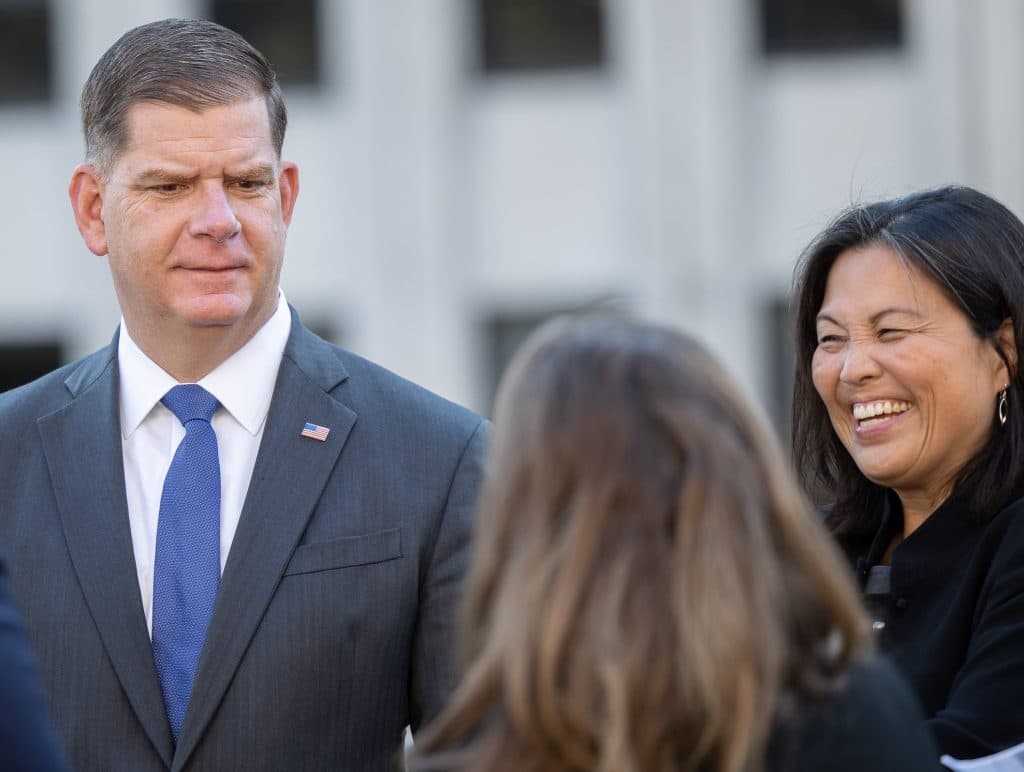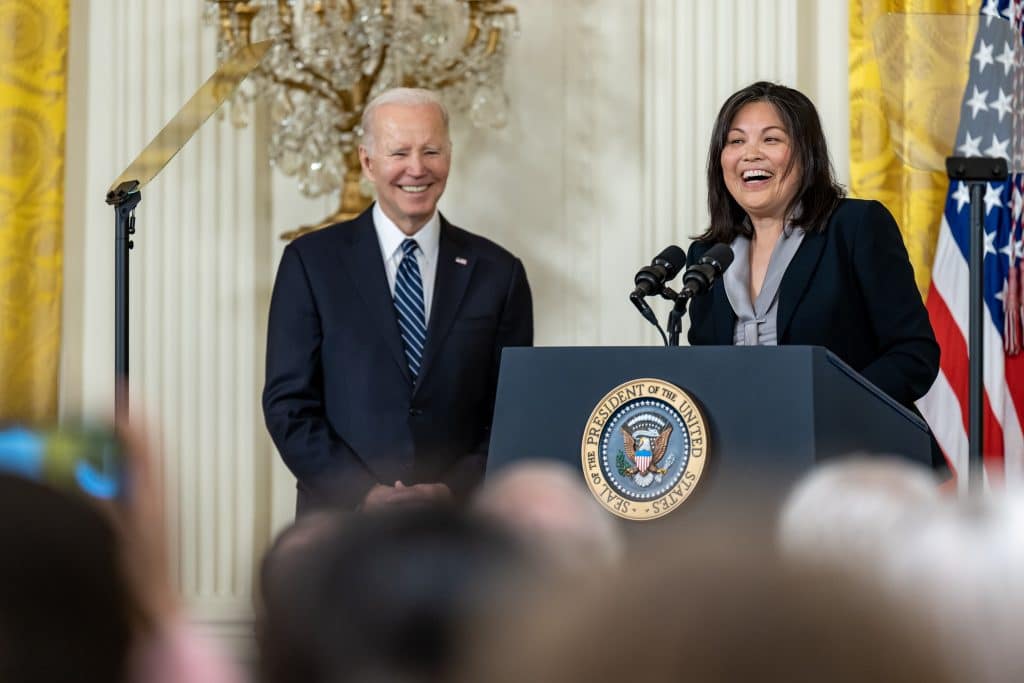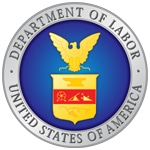On July 10, in a huge win for SMART members, the Department of Labor issued a memo stating that workers who perform testing, adjusting and balancing (TAB) work on HVAC systems that are involved in the construction, alteration and/or repair work on Davis-Bacon Act projects are entitled to prevailing wage coverage. This ensures ALL construction workers, including TAB technicians, get the pay they deserve, reversing decades of DOL interpretations that excluded TAB technicians from coverage.
“For far too long, the workers who perform testing, adjusting and balancing — crucial work that has only risen in profile since the COVID-19 pandemic — have been prevented from earning the prevailing wages they earned on projects covered by the Davis-Bacon Act,” said SMART General President Michael Coleman. “That ends now. This extremely important memo demonstrates how President Biden and his Department of Labor are working directly with SMART to make sure construction workers are paid in a way that corresponds to their essential labor.”
The July 10 All-Agency Memorandum (AAM) noted that workers performing TAB duties generally are considered “laborers or mechanics” within the meaning of the Davis-Bacon and Related Acts (DBRA) because TAB work generally involves duties that are primarily “manual or physical” in nature. The DOL notes, in the AAM, that TAB work has “traditionally been performed” by workers in the “sheet metal” trade.
Some highlights of the AAM:
Coverage of all TAB work on a DBRA site prior to completion
Where manual or physical activities such as TAB HVAC work are performed at the DBRA-covered site during the construction or renovation of a building or work — and where they precede the acceptance of the completed building or work — those activities are subject to Davis-Bacon coverage.
Coverage of all TAB work that is “directly related and integral” to “contemplated” construction
Davis-Bacon labor standards may also be applicable where a contract calling for testing HVAC system functionality is a necessary but preliminary component of a contemplated federal or federally assisted repair or rehabilitation project — even when the testing work is in a separate contract, as a project consists of all construction necessary to complete the building or work, regardless of the number of contracts involved (so long as all contracts awarded are closely related in purpose, time and place). Where DBRA-covered HVAC system construction, alteration and/or repair work is already contemplated, contracts for testing work to identify HVAC repairs, renovations or replacements that may be needed for such projects will generally be considered directly related and integral to the project, and thus subject to the Davis-Bacon labor standards.
Coverage of all TAB work on “operations and maintenance” contracts when the task order or purchase order is “closely related and integral” to construction, alteration or repair work
To the extent that a task order or purchase under an “operation and maintenance” contract is for construction, alteration or repair of a building or work, including an HVAC system — or involves TAB work that is closely related and integral to construction, alteration or repair work that is already contemplated — Davis-Bacon labor standards would typically apply to the order. Examples of operations and maintenance contracts include contracts at military bases, Department of Energy sites and other large federal facilities.
Finally, the AAM clarifies the circumstances under which TAB work is not covered under the DBRA, such as when: 1) it is performed under federal contracts for “routine, scheduled maintenance or servicing of HVAC systems;” 2) it is “uncertain” whether any “future” construction, alterations or repairs will take place at the location; or 3) a contract is “solely for inspection (i.e., testing) of HVAC installation or rehabilitation work.”


 WASHINGTON, DC – The U.S. Department of Labor’s Occupational Safety and Health Administration (OSHA) today announced an
WASHINGTON, DC – The U.S. Department of Labor’s Occupational Safety and Health Administration (OSHA) today announced an